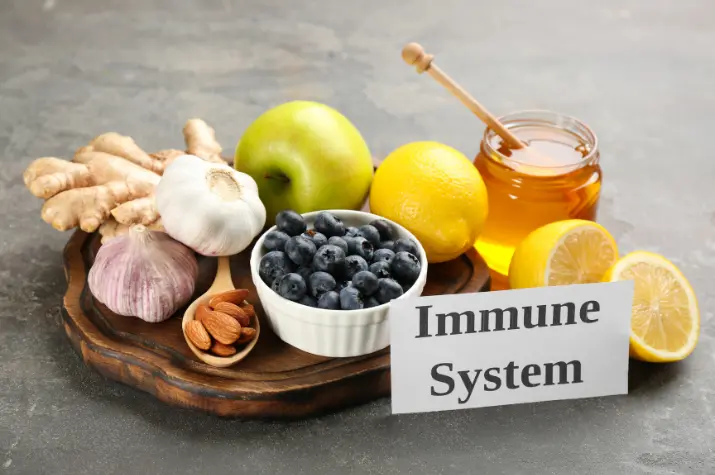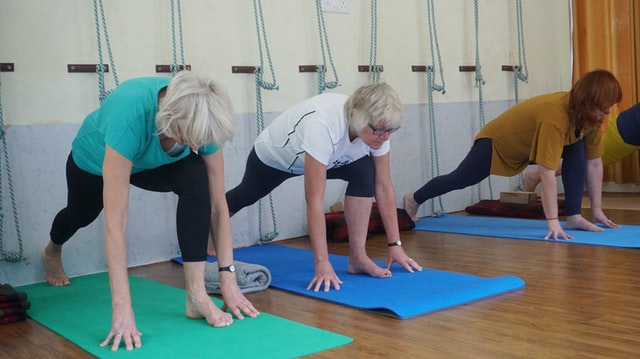
You must have already heard of natural immune boosters which help automatically give your immunity levels a major boost.
To enhance immunity, you should focus on helping your body gain the necessary confidence for combating infections and illnesses.
It is not that easy to bolster immunity rapidly although various changes in your diet and lifestyle may help with the same eventually while enhancing the natural defenses of the body and helping combat pathogens (organisms that cause diseases) that are harmful.
The whole idea of boosting immunity depends on a multi-pronged approach since the immune system is not a single entity and there is a lot of balance required for its smooth functioning.
There are however immediate effects of lifestyle changes and dietary aspects when it comes to better immunity as proved by several studies and researchers alike.
Along with taking supplements to boost your immune system, you should take recourse to several other methods.
9 vital tips that will help you boost immunity
1. Getting adequate sleep
All the immune-boosting supplements that you consume will be rendered slightly ineffective if you do not get enough sleep.
Poor quality of sleep or insufficient sleep is tied to the higher vulnerability of people to various ailments/illnesses.
A study also observed 164 healthy adults including those who slept less than 6 hours every night and found that they were more likely to suffer from a cold as compared to those who slept for at least 6 or more hours every night.
Getting proper rest and sleep will boost immunity, which is even more important when you are sick, to enable the immune system to combat the illness better.
Target 7 hours of sleep each night while teenagers require 8-10 hours. Up to 14 hours may be needed for infants and younger children.
2. Whole plant foods are highly recommended

Consumption of whole plant foods is always recommended for naturally enhancing immunity.
These include vegetables, fruits, legumes, seeds, and nuts among others, which are rich in antioxidants and nutrients which may help you immensely in the battle against pathogens which are harmful.
Antioxidants contained in these foods go a long way toward helping reduce inflammation by keeping unstable compounds (free radicals)at bay. The fiber contained in these foods helps in feeding the gut microbiome or healthy bacteria in your gut.
Vegetables and fruits are also rich in Vitamin C and other nutrients which may lower common cold and other persistent illnesses.
3. Try eating more healthy fats
Healthy fats may be consumed for better immunity as per doctors and experts. These are often found in foods such as salmon and olive oil and may enhance immune system responses to pathogens by lowering inflammation levels.
Olive oil is tied to a lower risk of chronic ailments including Type-2 diabetes and heart diseases while anti-inflammatory attributes help the body in combating disease-causing viruses and bacteria as well.
Omega-3 fatty acids like those contained in Chia seeds and salmon, also help in fighting inflammation.
4. Consume fermented foods/probiotic supplements
You may consider taking a look at fermented foods that have a rich content of probiotics or good bacteria that populate the digestive tract. Some of these foods include sauerkraut, yogurt, kefir, Kimchi, and Natto.
Studies have reported that a flourishing gut bacteria network will help the immune cells differentiate between healthy and normal cells along with harmful invader organisms. Probiotic supplements are a good option in this case as well.
5. Restrict your intake of added sugars
Several studies and reports have highlighted how refined carbohydrates and added sugars may disproportionately contribute to obesity and getting overweight. Obese people are more likely to fall sick due to various ailments.
Lowering added sugar intake will reduce overall inflammation while enabling faster weight loss and lowering risks related to chronic health ailments such as heart disease and Type-2 diabetes.
Limit added sugar content in your diet, keeping overall sugar intake to lower than 5% of daily calories consumed.
6. Moderate exercising always helps

Moderately exercising regularly will boost your immune system greatly.
Studies have indicated that even one moderate exercise/workout session can help enhance the overall effectiveness of vaccines in the case of people who have weaker immune systems.
Regular exercise will lower inflammation while enabling regular regeneration of immune cells.
Some examples of such moderate workouts include walking, jogging, bicycling, light hikes, swimming, and so on. Try to get in 150 minutes of moderate exercise throughout the week.
7. Remaining hydrated is a must
Hydration will not always safeguard you from viruses/germs although combating Dehydration is essential for overall well-being.
Dehydration may lead to headaches while also hampering your digestion, focus, kidney functions, and mood as well. Related.
Drink ample water and fluids daily. Limit consumption of fruit juice and tea which is sweetened, owing to higher sugar content.
Drink only when thirsty and stop drinking when you are no longer thirsty.
8. Keep stress levels in check
Good immune health is also a result of lower anxiety and stress levels. Long-term stress will naturally lead to higher inflammation along with imbalances in the functionality of immune cells.
The prolonged stress of a psychological nature may lead to suppression of responses of the immune system towards children. Activities for managing stress better include exercise, meditation, yoga, journaling, and other practices linked to mindfulness.
9. Consume supplements wisely
Supplements to boost the immune system are always a wise choice, particularly if you have read labels carefully and taken medical advice.
Vital vitamins, minerals, and other nutrients are contained in supplements and will help cover deficiencies arising from your daily diet, while also lowering risks related to several other diseases.
Supplements may help you consume enough Vitamin C, D, and other minerals along with fulfilling zinc and other deficiencies as well.
As you can see, these are the ways to boost your immune system over time. All it requires is time, hard work, and dedication on your part.
About The Author:
Lena is a passionate lifestyle blogger and writer. Besides writing about health and fitness, I love learning about history, crossword puzzles, and much more.




![How To Train Your New Puppy [6 Effective Tips] How To Train Your New Puppy](https://www.safeandhealthylife.com/wp-content/uploads/2023/09/How-To-Train-Your-New-Puppy-150x150.png)